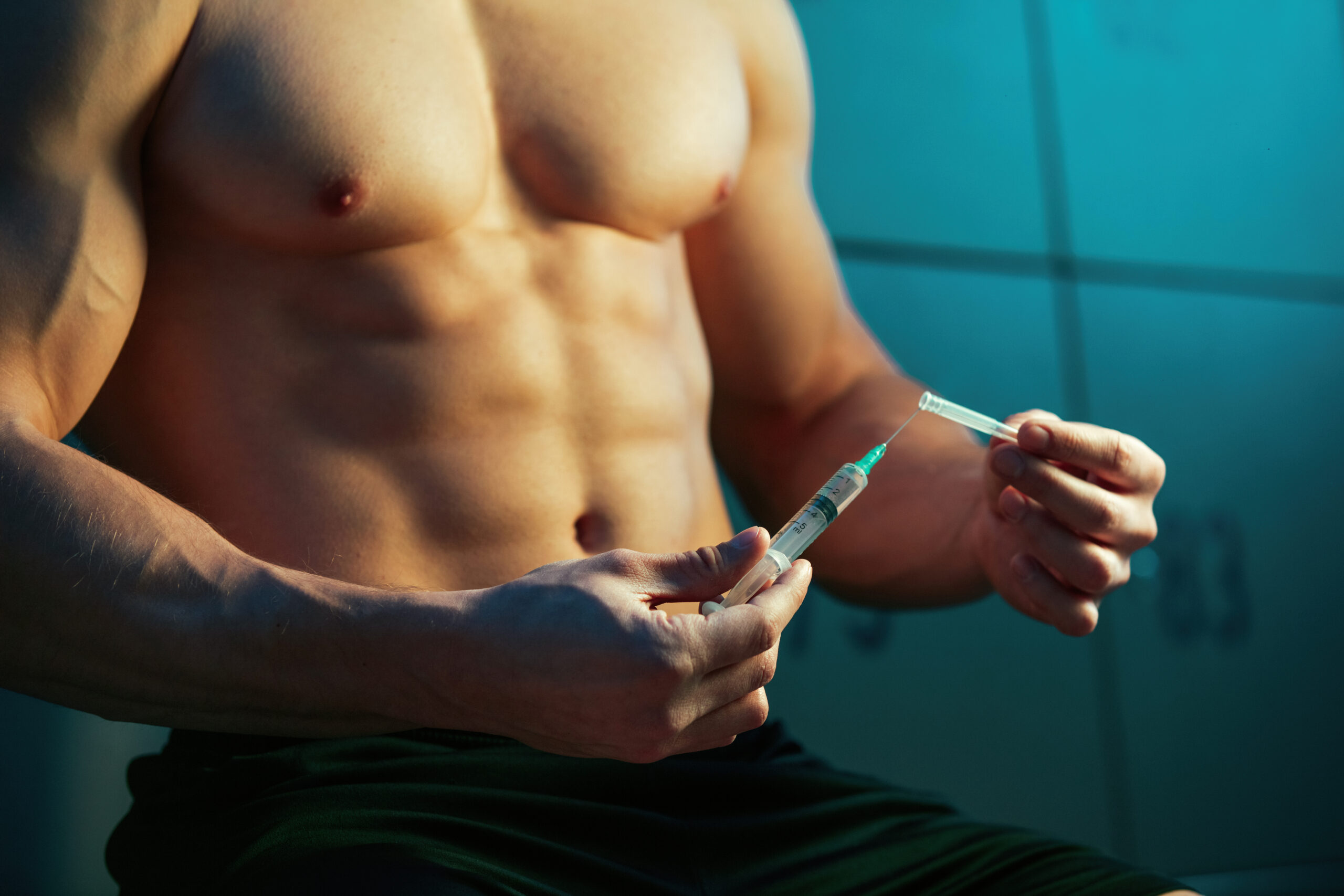Exploring the pros and cons of testosterone use is crucial for anyone considering testosterone therapy or seeking to understand its impacts. Testosterone, a vital hormone in both men and women, plays a significant role in various physical and psychological aspects of health. This blog post delves into the multifaceted nature of testosterone use, discussing its benefits, potential risks, and alternatives. Whether you’re considering therapy for health reasons or simply curious about its effects, this comprehensive guide aims to provide you with well-rounded insights, helping you make informed decisions about testosterone use.
Table of Contents
What is Testosterone and Its Role in the Body
Testosterone is often recognized as the primary male sex hormone, but its role in the body is multifaceted and vital for both men and women. Understanding what testosterone is and its functions can provide valuable insights, especially when considering the pros and cons of testosterone use.
Testosterone levels naturally decline with age. This decline can lead to various symptoms like reduced libido, fatigue, loss of muscle mass, and mood changes. Testosterone therapy promises to counteract these effects, but it’s not without its risks and benefits.
The Basics of Testosterone
Testosterone is a steroid hormone produced mainly in the testicles in men and the ovaries in women, with a small amount also made in the adrenal glands. In men, it is produced in significantly larger quantities and is responsible for the development of male sex characteristics like facial hair, a deeper voice, and increased muscle mass.
Testosterone in Women
In women, testosterone is present in smaller amounts but plays a crucial role in maintaining muscle strength, bone density, and sexual desire. It is essential to understand that testosterone is not exclusively a male hormone but an important one for overall health in both sexes.
Testosterone’s Role in the Body
- Physical Development: In males, during puberty, testosterone drives the development of secondary sexual characteristics. It’s responsible for increased muscle and bone mass and the growth of body hair.
- Energy Levels: Many individuals report an increase in energy and stamina with testosterone therapy, which can enhance overall quality of life and physical activity levels
- Muscle Mass and Strength: Testosterone plays a pivotal role in building and maintaining muscle mass and strength. This is particularly beneficial for those experiencing muscle loss due to aging or medical conditions.
- Bone Density: Testosterone contributes to bone health, aiding in the maintenance and increase of bone density. This can be especially important in preventing osteoporosis and related fractures.
- Body Composition: Testosterone therapy can help in reducing body fat and increasing lean body mass. This shift in body composition can lead to improved metabolic health and reduced risk of obesity-related diseases.
- Sexual Function: Testosterone is crucial for normal sexual development and function. In men, it drives libido, erectile function, and reproductive health. In women, it also influences sexual desire and may impact reproductive health.
- Mood and Mental Health: It can influence mood and mental health. Low levels of testosterone are often associated with fatigue, depression, and irritability.
- Overall Health Impact: Testosterone impacts cardiovascular health, fat metabolism, and even red blood cell production.
Understanding the role of testosterone is essential when considering its supplementation or therapy. It’s not just about enhancing sexual characteristics or physical strength; it’s about the hormone’s comprehensive impact on overall health. This understanding is critical in weighing the pros and cons of testosterone use, especially in therapy or supplementation forms.

Pros of Testosterone Use
When discussing the pros and cons of testosterone use, it’s essential to focus first on the potential benefits. Testosterone therapy, when prescribed and monitored by healthcare professionals, can offer several advantages, particularly for those experiencing low testosterone levels due to aging or medical conditions.
Improved Muscle Mass and Strength
One of the most well-known benefits of testosterone is its ability to increase muscle mass and strength. This is particularly beneficial for those who experience muscle wasting or weakness due to low testosterone levels. Enhanced muscle strength can contribute to better overall physical performance and health.
Enhanced Libido and Sexual Performance
Testosterone plays a key role in sexual health and function. For individuals with low testosterone, therapy can lead to an increased libido and improved sexual performance. This can be a significant quality-of-life improvement, especially for those experiencing a decrease in sexual desire or other sexual dysfunctions.
Better Mood and Energy Levels
Low levels of testosterone are often linked to mood swings, irritability, and fatigue. Testosterone therapy can help in elevating mood and energy levels, leading to an improved sense of well-being. Many individuals report feeling more vigorous and mentally sharper with normalized testosterone levels.
Increased Bone Density
Testosterone helps in maintaining bone density. Its use can be beneficial in preventing osteoporosis or weakening of bones, especially in older adults. Stronger bones mean a lower risk of fractures, which is crucial for maintaining mobility and independence with aging.
Potential Cardiovascular Benefits
While the relationship between testosterone and heart health is complex, some studies suggest that testosterone therapy might benefit heart health by improving cholesterol levels and overall cardiovascular function, especially in those with hypogonadism.
Improved Body Composition
Testosterone use can lead to a reduction in body fat and an increase in lean body mass. This change in body composition not only contributes to a more desirable physical appearance but can also have positive health implications, like better control of blood sugar levels and improved metabolic health.
Cognitive Benefits
Emerging research indicates that testosterone might have a role in cognitive health. Some studies have shown improvements in memory and cognitive function in individuals undergoing testosterone therapy, though this area requires more research.
Cons of Testosterone Use
While the pros and cons of testosterone use are a topic of much discussion, it’s vital to address the potential downsides. Testosterone therapy or supplementation, especially when not medically supervised, can pose several risks and side effects.
Risk of Cardiovascular Problems
One of the significant concerns with testosterone use is its potential impact on heart health. Some studies have indicated an increased risk of cardiovascular events, such as heart attacks and strokes, particularly in older men or those with pre-existing heart conditions.
Possible Prostate Health Issues
Testosterone therapy may exacerbate prostate health issues, including the growth of benign prostatic hyperplasia (BPH) and the risk of prostate cancer. Men with a history of prostate issues are often advised to approach testosterone therapy with caution.
Skin and Hair Changes
Testosterone use can lead to several skin-related side effects such as acne and oily skin. In some cases, it might also accelerate balding in men predisposed to male pattern baldness.
Sleep Disturbances
Some individuals on testosterone therapy report sleep disturbances, including sleep apnea. This condition can lead to significant health issues if left untreated and can reduce the overall quality of sleep.
Mood Fluctuations
Although testosterone can improve mood in some cases, it can also lead to mood swings, irritability, and aggression. These psychological effects can be challenging to manage and might impact personal relationships and quality of life.
Impact on Fertility
High levels of testosterone can negatively impact fertility by reducing sperm production. This is a crucial consideration for men who may wish to father children in the future.
Liver Function Impairment
Oral testosterone supplements, in particular, can have harmful effects on liver function. This is why most medical professionals prefer other methods of administration, like injections or topical applications.
Increased Risk of Blood Clots
Testosterone therapy can increase the number of red blood cells, which in turn can thicken the blood, leading to an elevated risk of blood clotting. This can have serious implications, especially for those already at risk for clotting disorders.
Understanding Testosterone Therapy: Who Needs It?
Testosterone therapy has become a topic of increasing interest, but it’s essential to understand who genuinely needs it. When evaluating the pros and cons of testosterone use, the decision to begin therapy should be based on medical need and under professional guidance.
Identifying Low Testosterone Levels
Low testosterone levels, medically known as hypogonadism, can manifest through various symptoms. These include decreased libido, erectile dysfunction, fatigue, loss of muscle mass, and mood disturbances. However, symptoms alone are not sufficient for diagnosis. Blood tests are required to confirm low testosterone levels.
Age-Related Decline in Testosterone
It’s natural for testosterone levels to decline with age, typically starting around age 30. While this decrease can lead to symptoms associated with low testosterone, not every aging man needs testosterone therapy. The decision should be based on a combination of symptomatic presentation and laboratory results.
Testosterone Therapy for Specific Medical Conditions
Apart from age-related decline, certain medical conditions can lead to low testosterone levels. These include testicular injuries, chemotherapy or radiation treatment for cancer, pituitary gland diseases, and certain genetic disorders. In such cases, testosterone therapy can be an essential part of treatment.
Lifestyle Factors and General Health
Before opting for testosterone therapy, it’s crucial to consider lifestyle factors and general health. Obesity, diabetes, and metabolic syndrome can also contribute to low testosterone levels. In some cases, addressing these underlying health issues can naturally improve testosterone levels without the need for hormone therapy.
Who Should Avoid Testosterone Therapy?
Individuals with certain health conditions should be cautious or avoid testosterone therapy. These include men with prostate or breast cancer, serious heart conditions, severe urinary tract symptoms, and uncontrolled heart failure.
Monitoring and Adjusting Therapy
Once on testosterone therapy, regular monitoring by a healthcare provider is essential. This monitoring includes evaluating symptom improvement, hormone levels, and potential side effects. Dosage adjustments may be necessary to achieve the best results with minimal risks.
The Psychological Effects of Testosterone Use
Testosterone’s influence extends beyond physical health, significantly impacting psychological well-being. Understanding these psychological effects is key when considering the pros and cons of testosterone use.
Positive Psychological Effects of Testosterone
- Mood Improvement: Many individuals report an enhanced sense of well-being with testosterone therapy. This can include a reduction in feelings of depression and anxiety, leading to a more stable and positive mood.
- Increased Energy and Motivation: Testosterone can contribute to higher energy levels, which in turn may improve motivation and drive. This boost can positively affect various aspects of life, from personal endeavors to professional productivity.
- Cognitive Clarity: Some users of testosterone therapy report improvements in cognitive functions like memory and focus. While the research is ongoing, this could be a significant benefit for those experiencing cognitive decline.
- Enhanced Libido: Testosterone plays a crucial role in sexual health. An increase in libido and sexual satisfaction can have a positive impact on overall mental health and relationships.
Negative Psychological Effects of Testosterone
- Mood Swings and Irritability: While testosterone can improve mood in some, it can also lead to mood swings, irritability, and aggression in others. These changes can be challenging to manage and might affect personal relationships.
- Overconfidence and Risk-Taking Behavior: Some studies suggest that higher levels of testosterone can lead to increased feelings of overconfidence and a propensity for risk-taking, which might not always result in positive outcomes.
- Dependency and Withdrawal: There’s a risk of becoming psychologically dependent on testosterone therapy, particularly if used without medical supervision. Abrupt cessation of use can lead to withdrawal symptoms, including mood swings and depression.
Long-Term Implications of Testosterone Use
Understanding the long-term implications of testosterone use is crucial when considering its benefits and drawbacks. While short-term effects are often discussed, it’s the prolonged impact that requires careful consideration, especially given the ongoing research in this area.
Potential Positive Long-Term Effects
- Sustained Muscle and Bone Health: Long-term testosterone therapy can help in maintaining muscle mass and bone density, especially important in aging populations to reduce the risk of falls and fractures.
- Continued Improvement in Sexual Health: For those with low testosterone, prolonged therapy can lead to lasting improvements in sexual desire and function, contributing positively to overall life satisfaction.
- Mood and Quality of Life: Consistent testosterone levels can lead to a stable mood and higher quality of life, particularly for those who experienced depressive symptoms due to low testosterone.
Potential Negative Long-Term Effects
- Cardiovascular Risks: Prolonged testosterone use has been linked in some studies to increased risks of cardiovascular problems, including heart attacks and strokes, especially in older individuals or those with pre-existing heart conditions.
- Prostate Health Concerns: Long-term testosterone use may increase the risk of prostate issues, including the growth of benign prostatic hyperplasia and potentially heightening the risk of prostate cancer.
- Hormonal Imbalance Risks: Extended use of testosterone can disrupt the body’s natural hormone regulation, potentially leading to issues if therapy is stopped suddenly or if it suppresses other hormonal functions.
- Fertility Implications: Long-term testosterone therapy can lead to reduced sperm production, impacting fertility. This is a critical consideration for men who may wish to father children in the future.
- Possible Skin and Hair Changes: Continuous use might exacerbate skin conditions like acne and accelerate hair loss in those genetically predisposed.
Monitoring and Adjustment
Given these potential long-term effects, regular monitoring by healthcare professionals is vital. This monitoring should include periodic assessment of hormone levels, heart health, prostate health, and overall well-being. Adjustments in therapy may be necessary based on these evaluations.
Alternatives to Testosterone Therapy
While testosterone therapy can be beneficial for some, it’s not suitable for everyone. Understanding alternatives to testosterone therapy is essential, especially for those weighing the pros and cons of testosterone use.
Lifestyle Changes
- Diet and Nutrition: A balanced diet rich in zinc and vitamin D can support natural testosterone production. Foods like lean meats, eggs, nuts, and legumes are beneficial.
- Regular Exercise: Regular physical activity, especially strength training and high-intensity interval training (HIIT), can naturally boost testosterone levels.
- Weight Management: Overweight and obesity are linked to lower testosterone levels. Losing weight through a healthy diet and regular exercise can help increase testosterone levels.
- Adequate Sleep: Quality sleep is crucial for maintaining healthy testosterone levels. Aim for 7-9 hours per night.
- Stress Reduction: Chronic stress elevates cortisol, a hormone that negatively affects testosterone. Techniques like meditation, yoga, and other stress-reducing activities can be beneficial.
Psychotherapy
- For Sexual Dysfunction: Sometimes, issues with libido or sexual performance are psychological. Therapy with a psychologist or sex therapist can be beneficial.
- Mental Health Support: If mood issues are related to low testosterone, counseling or therapy can help manage these symptoms.
Conclusion
The decision to use testosterone therapy should be made with a comprehensive understanding of its pros and cons, a thorough health evaluation, and continuous monitoring. While testosterone therapy can be life-changing for some, it is a significant decision that requires consideration of all possible implications, both in the short and long term. Remember, the goal is to enhance health and well-being in a way that is safe, effective, and individually tailored.




